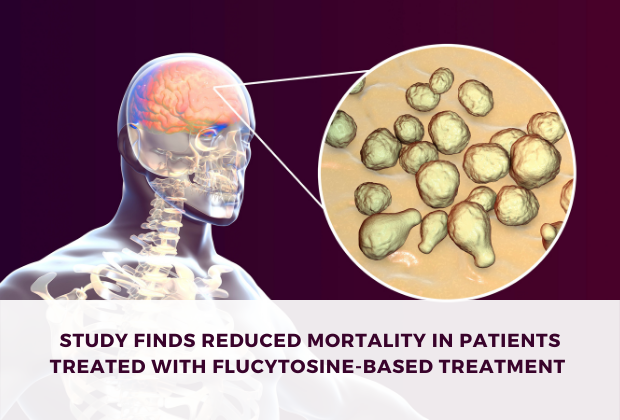The fungus Cryptococcus is the most common cause of meningitis, and the second leading cause of death in adults living with HIV. The National Institute for Communicable Diseases (NICD), a division of the National Health Laboratory Service, has completed a multi-stakeholder collaborative study to determine the effectiveness of flucytosine-based treatment in reducing HIV-associated cryptococcal meningitis deaths.
The cross-sectional study concluded that flucytosine-based treatment is associated with a substantial survival benefit when delivered routinely. “I am optimistic that these data will prompt urgent revision of the current South African guideline which still recommends treatment without this essential antifungal medicine,” comments Prof Nelesh Govender, Head of the NICD’s Centre for Healthcare-Associated Infections, Antimicrobial Resistance and Mycoses and senior author of the paper.
The World Health Organization has recommended flucytosine as a key life-saving component of cryptococcal meningitis treatment since 2018, yet this medicine was not available or registered in South Africa. A national access programme was initiated to confirm if flucytosine-containing regimens reduced the length of hospital stay (a major driver of costs) and improved survival compared with other regimens in routine care. Using its flagship national laboratory-based surveillance system (GERMS-SA), the NICD monitored almost 2 000 people with cryptococcal meningitis from July 2018 to March 2020.
These individuals were treated with or without flucytosine-containing regimens at 19 hospitals. “Our findings revealed that the 24% in-hospital mortality among patients treated with a flucytosine-containing regimen (vs. 37% mortality among patients treated with the standard care) in public-sector hospitals was comparable to the mortality reported in the Advancing Cryptococcal Treatment in Africa clinical trial. This was a 47% reduction in mortality,” Govender highlights.
While the burden of cryptococcal meningitis has declined in high-income countries with widespread access to antiretroviral treatment (ART), this health problem persists in countries where many people remain at risk because they are unaware of their HIV infection status and are thus ART-naïve, or interrupt ART after starting treatment. According to Rajasingham R, et al., authors of A global burden of disease of HIV-associated cryptococcal meningitis: an updated analysis, 73% of cryptococcal meningitis deaths occur in sub-Saharan Africa. “The data collected through the programme were invaluable in expediting flucytosine registration in December 2021 by the South African Health Products Regulatory Authority,” adds Govender. He concludes that to save lives, individuals diagnosed with HIV-associated cryptococcal meningitis need flucytosine-based treatment without further delay.
Click here to read the paper.





